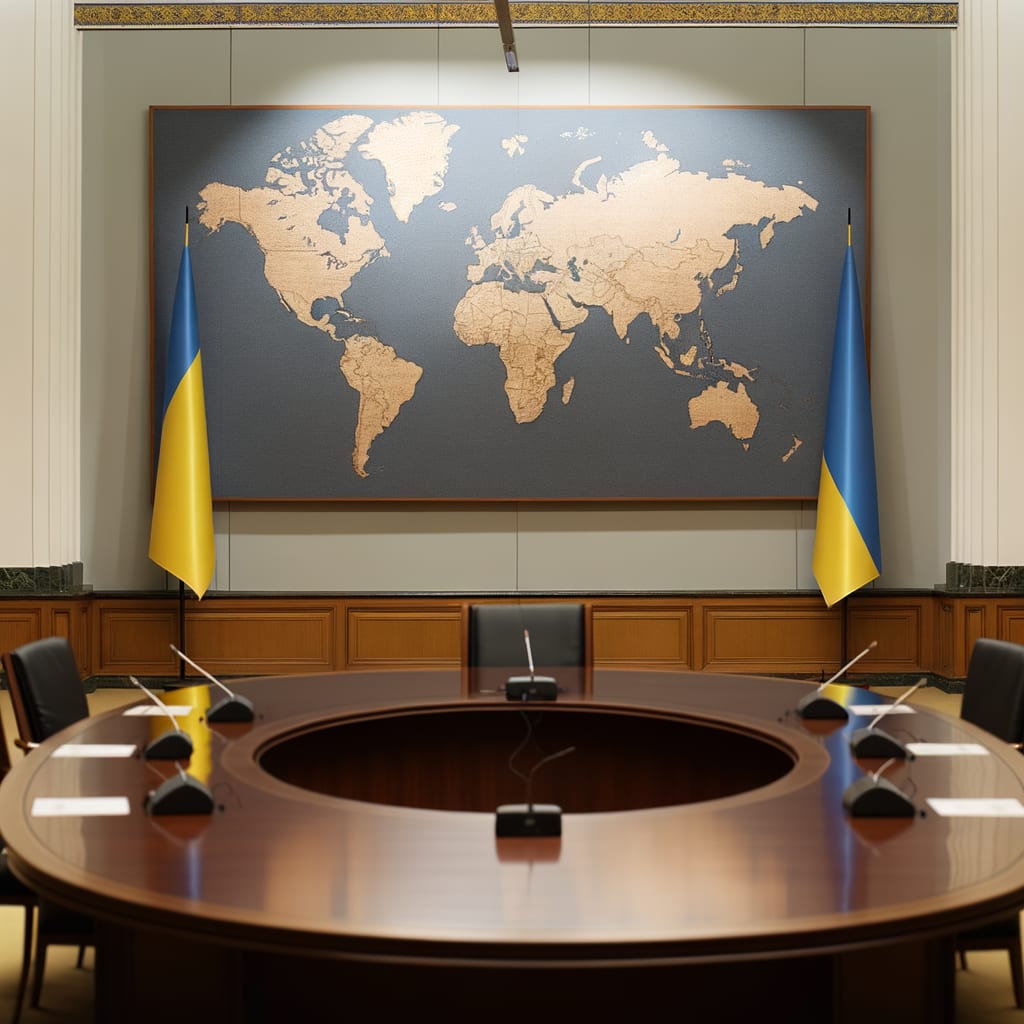EU, Ukraine Express Discontent Over Proposed US-Russia Peace Plan
European Union (EU) member states, along with Ukraine, have expressed concern and opposition to a peace plan for Ukraine, purportedly brokered directly between the U.S and Russia. The plan has raised objections due to perceived concessions to Russian interests and the exclusion of Europe and Ukraine from the negotiation process.
Background
The conflict in Ukraine began with a Russian invasion in February 2024 and has continued to strain international relations. In recent days, reports of a new peace plan negotiated by the U.S and Russia have circulated, causing a stir among European allies of Ukraine and Ukrainian officials themselves.
Key Developments
The peace plan, as reported by various sources including TASS and Al Jazeera English, involves territorial concessions from Ukraine, a reduction in Ukrainian armed forces, and a deviation from its NATO ambitions. Additionally, it does not call for an immediate ceasefire and does not consider Russia as the aggressor, leading to its characterization as a pro-Russia
plan by Folha de S.Paulo.
According to TASS, no EU country was involved in drafting the plan, a point of contention highlighted by EU's foreign policy chief, Kaja Kallas, who stated that Ukrainian and European input was necessary for any plan to be effective. This sentiment was echoed by several senior European diplomats, as reported by The Guardian and CBC News.
Reactions and Implications
European reactions to the plan have been predominantly negative. As Corriere della Sera reported, Europeans insist on being involved in the negotiation process, with Paris emphasizing that peace cannot equate to surrender. Furthermore, La Repubblica highlighted the EU's stance that both Europe and Ukraine are integral to the peace plan's success.
The proposal has also been met with skepticism regarding Russian intent, with the EU expressing doubts as per Al Jazeera English. Sky News world and Le Monde have reported that observers and Europeans respectively have voiced concerns over the plan's peculiarities and implications of a potential 'surrender' of Ukraine.
In Ukraine, the plan has been met with similar disapproval. New York Times reports confusion in Kyiv over the Trump administration's multiple diplomatic tracks. Ukrainian President Vladimir Zelensky, as reported by RT (Russia Today), confirmed receiving the proposal and expressed his hope to discuss it with U.S President Donald Trump in the coming days.
Current Status
As it stands, the plan is facing resistance from both European and Ukrainian fronts. La Repubblica reported that for foreign ministers, the plan would represent a capitulation, with Kallas warning that rewarding Moscow could lead to new aggressions.
Discussions continue as Europe assesses Ukraine's military needs, with the European Commission proposing funding Ukraine with either a $104 billion grant or an EU debt-backed loan as an alternative to Russian asset expropriation, according to TASS. As Sky News world suggests, Ukraine and Europe cannot outrightly reject the plan, and will likely play for time, hoping to persuade Trump to reconsider his stance.

